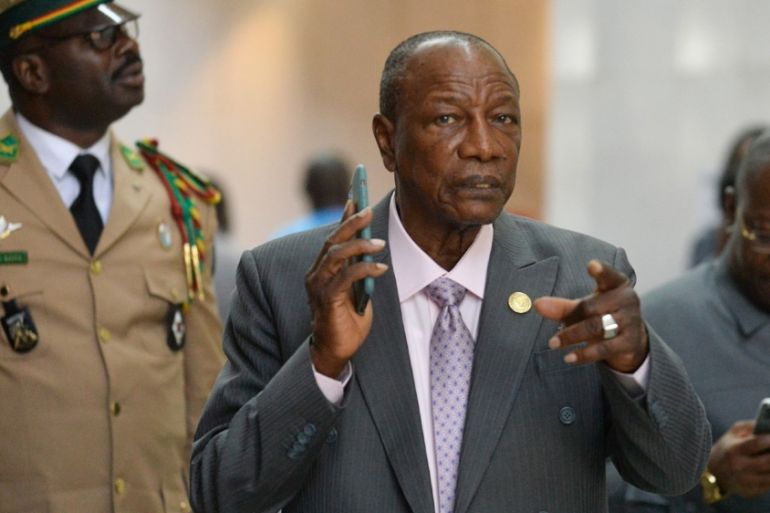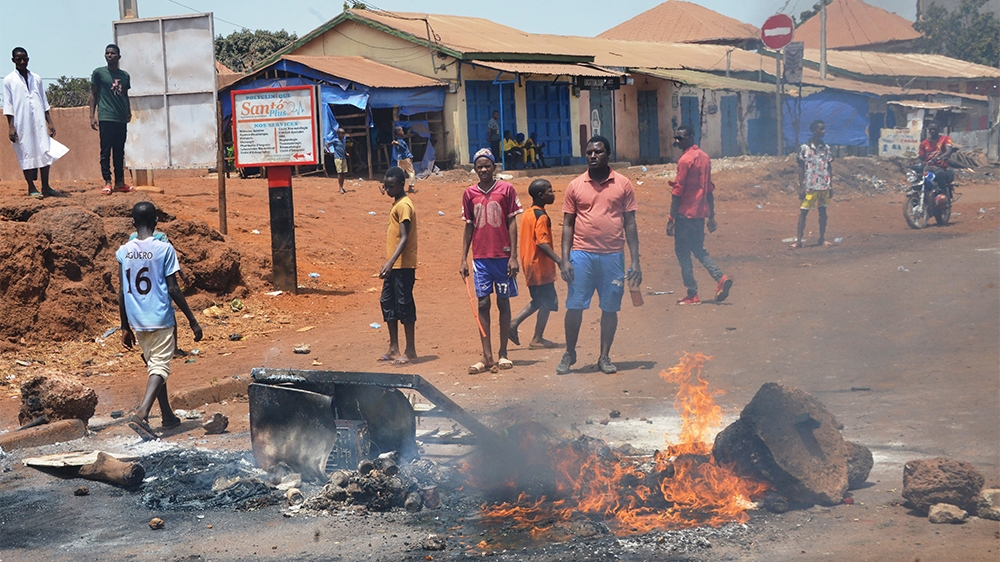Guinea holds controversial referendum marred by violence, boycott
Officials say at least two people killed during unrest over disputed vote, but opposition groups give higher death toll.

At least two people were killed in Guinea as violence erupted after President Alpha Conde went ahead with a bitterly contested referendum to revise the constitution.
Opposition groups had called for a boycott of the delayed vote, accusing Conde of planning to use Sunday’s referendum to extend his stay in office.
Keep reading
list of 3 itemsGuinea protests: Renewed calls for president’s resignation
Guinea President Conde hints at third term bid despite protests
Violence broke out in different parts of the country, including the capital, Conakry, following protests by opposition supporters.
At least two people were killed in the unrest and the staff of one polling station were kidnapped, the security ministry said in a televised statement.
A coalition of opposition parties and civil society groups, known as the FNDC, gave a higher death toll, alleging that security forces “carried out massive arrests, fired blindly, cruelly molested (and) killed at least 10 people”.

Conde, Guinea’s first democratically elected president whose second and final term ends in December, is constitutionally barred from running for a third term.
He is proposing a change to the constitution to codify gender equality and introduce other social reforms.
But his opponents fear the real motive is to reset presidential term limits, allowing the 82-year-old president to run for a third stint in office later this year – a scenario his government has not discounted.
The opposition boycott all but guarantees the new basic law will be approved when results are announced in coming days, despite the risk it could trigger wider unrest.
Since October, Guineans have protested en masse against the possibility of Conde extending his mandate.
The FNDC called for fresh protests on Monday and Tuesday.
Originally scheduled for March 1, Conde postponed the referendum and a simultaneous legislative election late last month after international criticism of some 2.5 million dubious names on the country’s electoral roll.
Some 7.7 million people were on the register, of a total population of about 13 million people.
The polls were held despite the threat of coronavirus in the country.
With the first two cases of the COVID-19 disease recorded in Guinea, some polling stations required voters to wash their hands before casting their ballot and radio stations reminded citizens to keep their distance from one another.
At some polling stations, a large turnout meant crowds were squeezed in line to vote, according to a Reuters witness. Few people wore masks.